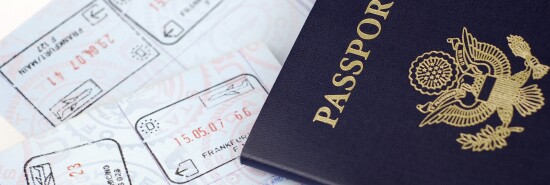
Passport control at Dulles is a national embarrassment
Ryan Bourne
Video Embed
Welcome to America: land of the free, home of the brave, and, in Washington, D.C., the purgatory of passport control lines. At Northern Virginia’s Dulles Airport, thousands of weary travelers these days are greeted with a first impression of a country that’s less “amber waves of grain” and more “snaking queues of disdain.”
As wait times grow unbearable and U.S. Customs and Border Protection indifference becomes palpable, one must question: Does anyone actually want to solve the problem?
THREE PENNSYLVANIA AIRPORTS RECEIVE $39 MILLION FOR UPGRADES
The last three times I’ve disembarked from the Star Wars cantina-like mobile lounges to passport control, the lines have been 90 minutes-plus long. That’s, sadly, no longer unusual. Stats show that from April 1, 2022, to March 31, 2023, there were 348 days with maximum waiting times of over an hour, 233 days of over 90 minutes, and 98 days in which some people were slinking around the hall for two hours or more. Judging by the anger and recollections of queuers, the official maximum wait time each day often substantially understates what passengers say they experience.
CBP management seems perennially surprised that flights arrive as scheduled. That, or they just don’t care. Individual officers are usually helpful and diligent. But there aren’t enough to serve passengers’ needs, with afternoon and evening periods regularly and severely understaffed. My Jan. 2 experience saw, at most, eight officers working, and just two at one stage, serving nonpriority lanes filled with thousands of people from eight flights. CBP’s own data, bizarrely, recorded at least 11 open booths throughout my two-hour stay.
The economic impact of these queues is staggering. Consider the American Bar Association Antitrust Law Section’s recent 71st conference in Washington, attended by high-end lawyers and economists whose hourly bills for time can reach thousands. Many of these professionals arriving languished in passport lines for around two hours, with their valuable time and potential client work evaporating like morning dew. Add up these missed opportunities across weekly delays, and it soon becomes clear that the passport control line is not just an inconvenience but an economic black hole.
Then there’s the discomfort and lost social time. Passengers scheduling pickups are at a loss in informing taxis and friends, who also wait around. The line moves just enough that you can never restfully sit, leaving older passengers and young children standing for hours, while those traveling alone worry about navigating bathroom breaks without losing their spot in line. So much time is wasted in the hall that European travelers often sacrifice the possibility of seeing friends and family for their first night on short trips.
CBP promotes its Mobile Passport Control app to avoid these queues, but it sometimes doesn’t work, is only for U.S. and Canadian citizens, and, if widely used, would just displace the problem. Paying for Global Entry is obviously another option, but it’s unavailable to many countries’ citizens and requires difficult-to-schedule appointments or else even longer waits at a U.S. entry airport for an induction interview.
Ultimately, the situation is untenable, wasteful, and getting worse. Yet nobody seems to care. You’d think these economic and social costs, coupled with the damage to the airport and capital’s reputation, would invoke some soul searching. But no. Rather than calibrating officer numbers with passenger flow, the CBP seems unmoved. Until whatever is causing this staffing and scheduling problem is resolved, Dulles remains a demoralizing gateway to America, a bureaucratic black hole sapping the spirit of even the most cheerful traveler.
CLICK HERE TO READ MORE FROM THE WASHINGTON EXAMINER
Ryan Bourne occupies the R. Evan Scharf Chair for the Public Understanding of Economics at the Cato Institute.
